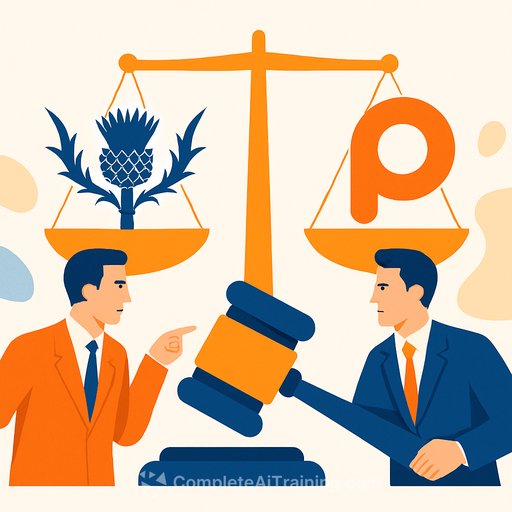Britannica Sues Perplexity for Copyright and Trademark Infringement
On September 12, 2025, Britannica Group filed a lawsuit against Perplexity, alleging copyright infringement and trademark misuse. The complaint centers on claims that Perplexity scraped Britannica's sites, reproduced protected content without permission, and created false associations with the Britannica brand.
Britannica also alleges that Perplexity ignored robots.txt directives to access restricted pages, and seeks damages and injunctive relief to halt further use of its content.
What Britannica Alleges
- Unlawful scraping of Britannica-owned websites and reproduction of articles without authorization.
- Misappropriation of trademarks and use of fabricated information linking Britannica to AI-generated outputs.
- Disregard for robots.txt directives to access restricted content.
- Request for unspecified damages and an injunction to prevent continued use of proprietary material.
Statements from Britannica
"Perplexity dubs itself the 'world's first answer engine,' but numerous responses it provides are derived from Britannica's content," said Jorge Caws, CEO of Britannica Group. "Today's litigation underscores our commitment to safeguarding our intellectual property, crucial for enhancing educational outcomes and aiding educators' efforts in teaching while enriching the learning experience for individuals of all ages."
Britannica added, "We have made substantial investments in thorough fact-checking and upheld strict editorial standards to deliver reliable information across our 20 billion monthly engagements. Britannica remains the preeminent source of trusted answers."
Context: Prior Disputes Involving Perplexity
Perplexity is also in litigation with News Corp, parent of the Wall Street Journal, over alleged copyright infringement. Perplexity has claimed its prior communications on the issue were overlooked and characterizes the situation as an oversight.
Key Legal Issues for Counsel
- Copyright: Scope of exclusive rights (17 U.S.C. §106), reproduction and display by an AI service, and applicability of fair use given purpose, amount used, and market impact. See overview by the U.S. Copyright Office: AI and Copyright.
- Website Terms and Access Controls: Effect of violating site Terms of Use and robots.txt on claims such as breach of contract, trespass to chattels, or computer access statutes depending on technical barriers and consent.
- Trademark: Whether outputs create likelihood of confusion, false endorsement, or dilution by linking Britannica's marks to AI-generated content. Background: Lanham Act (LII).
- False Advertising/Passing Off: Claims arising if the AI system suggests content originates from or is approved by Britannica.
- Injunctive Relief: Likelihood of success, irreparable harm, balance of equities, and public interest-particularly where ongoing scraping is alleged.
- Evidence: Crawler logs, training data sources, cache archives, alerting/abuse pipelines, and user-facing prompts that could imply endorsement.
Practical Steps for AI and Content Platforms
- Audit crawler behavior: honor robots.txt, noindex, and rate limits; document exceptions and vendor access.
- Align data acquisition with explicit licenses; maintain provenance records for datasets and model training inputs.
- Calibrate model prompts and UI copy to avoid implying partnerships or endorsements; restrict brand-invoking templates.
- Implement domain and path blacklists for scraped ingestion; verify that restricted paths are excluded from caches and indexes.
- Enforce TOU workflows: clear assent, API keys, revocation mechanisms, and monitoring for abusive scraping.
- Establish takedown and remediation playbooks: rapid response to complaints, logging, and corrective updates to models and retrieval layers.
- Trademark hygiene: approval gates for mark usage, negative keywords to prevent unwanted brand pairing, and legal review of marketing claims.
What to Watch Next
- Whether Britannica moves for a preliminary injunction and how the court weighs alleged robots.txt disregard.
- Discovery into training data, retrieval pipelines, and any brand-affiliation messaging within the product.
- How courts balance innovation against publishers' exclusive rights and whether licensing frameworks emerge from settlement.
Documents Noted in the Filing
- Britannica v. Perplexity complaint (PDF) referenced in the announcements.
- Reuters coverage referenced by the parties.
Your membership also unlocks:






